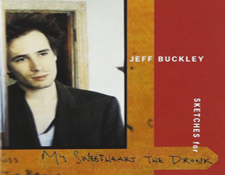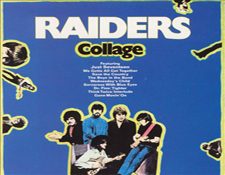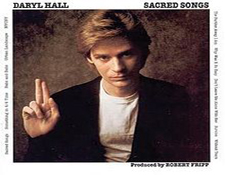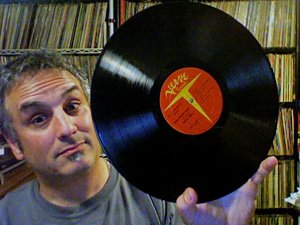It’s the time of year for saving money!
There often comes a point in the careers of many a recording artist where their initial direction exhausts itself and — usually for fear of growing stale and/or not growing with their ever changing audiences — they start to make changes in musical direction. Alternately, sometimes a band is just so at wits end frustration with record label politics and the soul-sucking quest for a hit record that they just throw caution to the wind and do whatever they please, come hell or high water.
 Some successful examples of bands who weathered said changes by mixing things up a bit include The Beatles, U2 and Bruce Springsteen. Unfortunately for every success story there are probably at least a gazillion failures. That doesn’t mean the records were bad however. In fact, some of those missed-the-mark wonders have gone on to become recognized legends influencing many subsequent generations.
Some successful examples of bands who weathered said changes by mixing things up a bit include The Beatles, U2 and Bruce Springsteen. Unfortunately for every success story there are probably at least a gazillion failures. That doesn’t mean the records were bad however. In fact, some of those missed-the-mark wonders have gone on to become recognized legends influencing many subsequent generations.
One of the grandest examples is The Kinks’ Village Green Preservation Society, a near perfect record which tanked into utter obscurity upon release and is now regarded as one of the great masterpieces of British rock. It was just a bit out of sync with the times in which it was released. Quite a bit, actually. Yet it is exactly that out-of-sync-ness that makes many of those types of records almost timeless, music that could have been made at any time and — more importantly — enjoyed at any time: past, present and future.
Anyhow, in recent months I’ve noticed a little phenomenon going on amidst music collectors I’ve been meeting on and offline: they have been rediscovering and embracing a lot of old and fairly obscure recordings from the 60s and 70s in categories as diverse as progressive rock, lounge-y pop and even folk / singer-songwriter things. The folk stuff has especially surprised me (I won’t be surprised if we see a Monsters of Mellow Soft Rock tour happening one of these days).
The other day someone on one of the music forums in which I participate on Facebook made a comment about these very people which made a lot of sense. He said (paraphrased) ‘they are people from another generation listening to this lost music without any of the surrounding baggage that may have hindered its success in the first place.’
I mean, really, think about it: what if The Kinks’ Village Green album hadn’t been put out on the coat-tails of a perfect storm of albums by The Beatles (The White Album), The Rolling Stones (Beggars Banquet), Jimi Hendrix (Electric Ladyland), The Band (Music From Big Pink), A Saucerful of Secrets (Pink Floyd) and Big Brother & The Holding Company (Cheap Thrills)? And those examples cited are just some of the taste-making, movement defining albums that came out at that time, clearly overshadowing The Kinks work and underscoring just how out of step it was with the times. In a different time-space zone, perhaps the world would have noticed and fallen in love with that seminal Kinks album.
But again, out of step with the times doesn’t mean the record was bad. In fact, it may well mean that the music is of its own time and place and thus timeless.
And thus we come full circle to the point of this list of some albums you probably have missed which I like a whole bunch for various and sundry reasons, both musically and sonically:
 Collage by The Raiders (1970) — After the pop hits had dried up, the legendary rockers from the Pacific Northwest were struggling to get audiences to accept them out of their gimmicky (but fun!) revolutionary garb that graced most of their early albums. Remember when Kiss went “unmasked?” To fans of Paul Revere and the Raiders (and the press) the impact was probably similar. By 1970, only Paul Revere himself and singer Mark Lindsay remained as original members and the new Raiders rocked just as hard as the original band, maybe more so. In 1970, Mark Lindsay drove the development of this eclectic but solid rock album which opens with a rollicking cover of Laura Nyro’s “Save The Country” (which most people know from The Fifth Dimension’s version), replete with cowbell.” Epic side closers “Just Seventeen” and “We Gotta All Get Together” show that clearly the band could jam out with the best of the groups who were stretching out tracks well beyond the old three minute max for A.M. radio. There are even lovely acoustic flavored link tracks (“Wednesday’s Child” , “Interlude”) which would not be out of place on a Moody Blues album. A little over the top at times (Horns! Strings! Pedal Steel! More Cowbell!), but at the end of the day you have a record that is both of and outside its time. A record that even the then-cutting edge underground Rolling Stone gave the album a big thumbs up (reviewed by Lenny Kaye, according to the Wiki!). So, if you want to hear Paul Revere and the Raiders shedding their showbiz skins in the name of rock ‘n roll street cred, Collage may be your ticket.
Collage by The Raiders (1970) — After the pop hits had dried up, the legendary rockers from the Pacific Northwest were struggling to get audiences to accept them out of their gimmicky (but fun!) revolutionary garb that graced most of their early albums. Remember when Kiss went “unmasked?” To fans of Paul Revere and the Raiders (and the press) the impact was probably similar. By 1970, only Paul Revere himself and singer Mark Lindsay remained as original members and the new Raiders rocked just as hard as the original band, maybe more so. In 1970, Mark Lindsay drove the development of this eclectic but solid rock album which opens with a rollicking cover of Laura Nyro’s “Save The Country” (which most people know from The Fifth Dimension’s version), replete with cowbell.” Epic side closers “Just Seventeen” and “We Gotta All Get Together” show that clearly the band could jam out with the best of the groups who were stretching out tracks well beyond the old three minute max for A.M. radio. There are even lovely acoustic flavored link tracks (“Wednesday’s Child” , “Interlude”) which would not be out of place on a Moody Blues album. A little over the top at times (Horns! Strings! Pedal Steel! More Cowbell!), but at the end of the day you have a record that is both of and outside its time. A record that even the then-cutting edge underground Rolling Stone gave the album a big thumbs up (reviewed by Lenny Kaye, according to the Wiki!). So, if you want to hear Paul Revere and the Raiders shedding their showbiz skins in the name of rock ‘n roll street cred, Collage may be your ticket.
 Sacred Songs by Daryl Hall (1977/1980) — Produced by then-ex-King Crimson guitarist Robert Fripp, Sacred Songs was supposed to be part of a trilogy alongside Peter Gabriel’s second solo album (which Fripp also produced) and Fripp’s own Exposure. Halted by Hall’s label (RCA) on the grounds that the record was not commercial and might damage the growth of Hall & Oats’ fan base, the album was delayed for three years and released in 1980. It didn’t become a hit and most people I know didn’t even know of its existence. Heck, most still don’t, which is why I’m writing about it. That and the fact that it is a fantastic album! Why it was released in 1980, I will never quite know (given that Hall & Oats were becoming bigger still at that time than they were when the album was initially delayed, so worries of alienating a fan base were clearly unwarranted … or something). Whatever the case, this album rocks like nobody’s business and is everything you wouldn’t expect from the Daryl Hall most of us know just from the Hall & Oats pop hits. This album broods, bursts, sputters and shoots like a rocket. From the searing rockers like “NYCNY” to the plaintive “Why Was It So Easy,” (which could have easily been a hit), Sacred Songs sounds every bit as fresh and modern today as it did in 1980 when it was released. “Something in 4/4 Time” could have been a Todd Rundgren pop hit. And album closer “Without Tears” tears me up every time. LP copies of this album are around but if you can’t find it easily, there is a handy CD reissue available with bonus tracks (songs from Fripp’s solo album featuring Hall on vocals) that sounds mighty fine. Sacred Songs makes for good car listening. I’ll put it this way: if you liked Bowie’s Scary Monsters, you’ll probably like this.
Sacred Songs by Daryl Hall (1977/1980) — Produced by then-ex-King Crimson guitarist Robert Fripp, Sacred Songs was supposed to be part of a trilogy alongside Peter Gabriel’s second solo album (which Fripp also produced) and Fripp’s own Exposure. Halted by Hall’s label (RCA) on the grounds that the record was not commercial and might damage the growth of Hall & Oats’ fan base, the album was delayed for three years and released in 1980. It didn’t become a hit and most people I know didn’t even know of its existence. Heck, most still don’t, which is why I’m writing about it. That and the fact that it is a fantastic album! Why it was released in 1980, I will never quite know (given that Hall & Oats were becoming bigger still at that time than they were when the album was initially delayed, so worries of alienating a fan base were clearly unwarranted … or something). Whatever the case, this album rocks like nobody’s business and is everything you wouldn’t expect from the Daryl Hall most of us know just from the Hall & Oats pop hits. This album broods, bursts, sputters and shoots like a rocket. From the searing rockers like “NYCNY” to the plaintive “Why Was It So Easy,” (which could have easily been a hit), Sacred Songs sounds every bit as fresh and modern today as it did in 1980 when it was released. “Something in 4/4 Time” could have been a Todd Rundgren pop hit. And album closer “Without Tears” tears me up every time. LP copies of this album are around but if you can’t find it easily, there is a handy CD reissue available with bonus tracks (songs from Fripp’s solo album featuring Hall on vocals) that sounds mighty fine. Sacred Songs makes for good car listening. I’ll put it this way: if you liked Bowie’s Scary Monsters, you’ll probably like this.
Sketches (For My Sweetheart The Drunk) by Jeff Buckley (1998) — By now, most of you probably know the tragic tale of the ’90s most promising rising star whose life was cut off tragically in a drowning accident while working on his second album. Buckley’s debut, Grace, is arguably one of the best albums of that decade and some — myself included — consider it one of the finest of rock albums, period. Perhaps it was the pain of his loss, but for whatever reason, I’ve only known one person who got into the posthumously released Sketches (For My Sweetheart The Drunk). This is a shame as there is some fine music in there. The two CD (and three LP import) set includes a complete first mix done by Television’s Tom Verlaine — rejected by Jeff and thus prompting his continued work on the record — that is pretty spectacular, all things considered. Tracks like “Everybody Here Wants You” and “The Sky is a Landfill” shimmer and sparkle. “New Years Prayer” sounds almost like a Grace outtake (I don’t consider that a bad thing). Two of my favorite tracks, “Nightmares by the Sea” and “Witches Rave,” percolate with an edginess that makes me either bob my head in mock headbanger fashion or simply want to get up and dance around the room (quite an image I’m painting, I know). The second disc includes some alternate mixes and cassette demos including an amazing version of Genesis’ “Back in NYC” (which at the time was a revelation hearing this post-grunge, next generation Dylan/Costello/Springsteen candidate tackling decidedly unhip-at-the-time prog rock). So, yes, if you have Grace, you really need to get Sketches (For My Sweetheart The Drunk). If you don’t have either, definitely start with Grace and then get this. But don’t let Sketches (For My Sweetheart The Drunk) pass you by. It’s a fine fine — and fine sounding — album.






